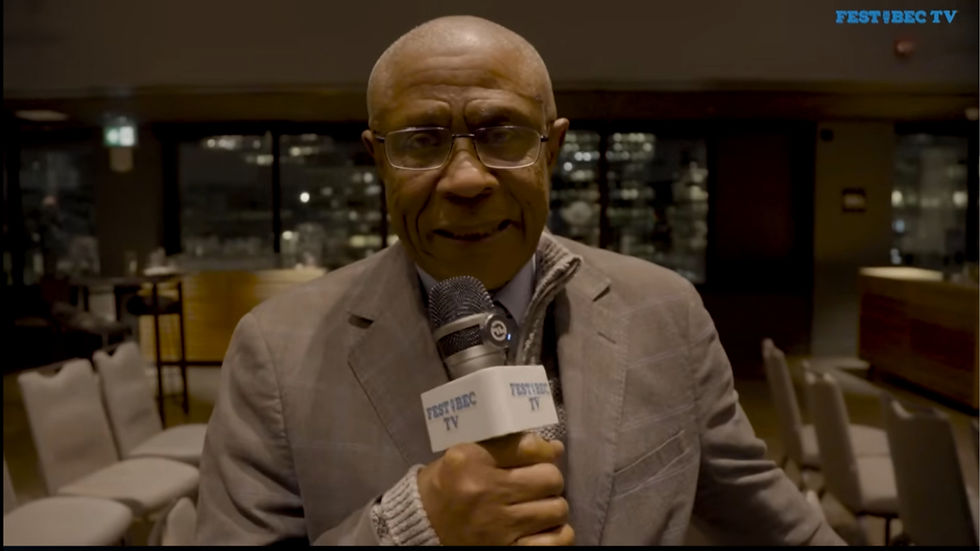An Inspiring Journey of Deputy Shirley Dorismond: Inclusion, Politics, Racism
- Editor

- Aug 30, 2025
- 3 min read

Rare are the political trajectories that so strongly combine field experience, a sense of commitment, and closeness with citizens. Charlie Dorismond, Member of the National Assembly for Marie-Victorin and Parliamentary Assistant to the Minister responsible for Social Services, is the living example of this. A nurse by training, a woman of conviction, and an engaged figure in her community, she has succeeded in transforming a vocation for care into a political mission focused on the most vulnerable.
Born in Quebec and arriving in Longueuil at the age of 18 months, Ms. Dorismond comes from the first Black family to settle in the city. Her childhood in a school environment marked by diversity and social challenges shaped her perspective on the importance of education and supporting young people.
“From adolescence, I understood that one had to help without judging. I met young people in difficulty, and that closeness guided me toward the nursing profession,” she confides.
After starting her career in hospital settings, she quickly chose community health and mental health, where she felt she could have a direct impact. “I needed to be close to people, in their daily reality. For me, the human relationship is at the heart of care.”
With more than twenty years of experience working with marginalized groups — people experiencing homelessness, sex workers, vulnerable families, or individuals struggling with mental health issues — Ms. Dorismond’s entry into politics was a natural continuation of her commitment.
Elected in 2022 during a by-election, she quickly distinguished herself through her work on the ground. “I knocked on 20,000 doors. That confirmed to me that I could truly contribute to the needs of my riding.”
Among her recent achievements, she proudly cites the creation of more than 500 subsidized daycare places and the establishment of a social pediatrics clinic affiliated with a CPE.
At the heart of her political action, the deputy defends a cause close to her heart: the role of CLSCs. “The 2015 reform weakened frontline care. The pandemic made this difficulty worse. Today, my fight is to restore CLSCs to their importance and central role with families.”
She emphasizes the importance of the interdisciplinary model: “In CLSCs, nurses, psychologists, and social workers work together. We break down silos, we support people in their entirety, both physically and psychologically. That’s what makes our system strong.”
The daughter of immigrants, Ms. Dorismond is deeply aware of issues related to discrimination. “For me, social injustice touches me profoundly. From the moment I was elected, I wanted to highlight Black entrepreneurs and the cultural communities of Longueuil.”
She has multiplied local initiatives — showcasing businesses from diverse backgrounds, participating in Black History Month, leading anti-racism awareness campaigns in sports, and forming partnerships with organizations like the Bureau de la communauté haïtienne de Montréal to train child protection workers.
“The fight against racism is transversal. It must go through every ministry, from housing to health, to public safety,” she reminds us.
Beyond the files, Ms. Dorismond remains guided by her professional and personal identity. “Being a nurse is in me. Listening, empathy, non-judgment: these are the values that help me build strong projects.”
Her role as a mother also strengthens her political vision. “When we talk about children with special needs, I know it’s not only the child who must be supported, but the whole family.”
To young people who hesitate to get involved, she sends a clear message: “You are in your place. You don’t have to claim it. Stay in school, be persistent. Your parents have made sacrifices, make them proud. My diploma, my mother always told me, is my husband.”
Faced with skepticism toward politicians, Charlie Dorismond relies on one simple value: authenticity. “When you lie, it shows. When you are passionate, it shows too. Me, I choose to be real.”
And perhaps that is the secret of her trajectory: transforming the rigor of a nurse and the sincerity of a mother into a political force in the service of the common good.




Comments